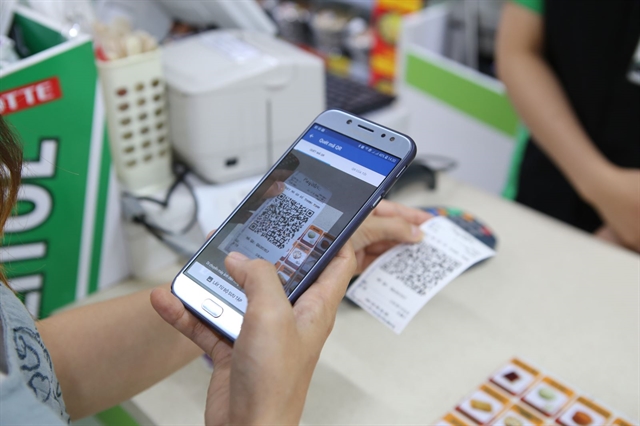The COVID-19 pandemic not only creates challenges for banks, but also pushes them to foster digital transformation to survive, experts have said.

The COVID-19 pandemic not only creates challenges for banks, but also pushes them to foster digital transformation to survive, experts have said.
A recent survey by the State Bank of Vietnam found that 95 per cent of credit institutions in Viet Nam have either implemented digital transformation strategies or are in the process of formulating them.
It is expected that in the next three to five years digital-only banks will have revenue growth of at least 10 per cent, while regular lenders will have more than 60 per cent of customers using digital transaction channels.
State-owned banks seek to digitise their entire system, while smaller banks have identified certain areas to improve service quality and the customer experience.
Commenting on digital banking development in Viet Nam at an online talkshow IDG TekTalk on Tuesday, Phan Viet Hai, director of information technology and also the digital banking centre at Viet Capital Bank, said digital banks must create a superior customer experience by changing the way services are provided using technology.
Nguyen Quang Minh, deputy CEO, partnerships, Timo Digital Bank, said, "In addition to offering perfect and up-to-date financial products and services, we also have to really understand the market, customers' needs and expectations and more importantly, identify the problems and difficulties they are facing every day in each transaction.”
Pham Quang Minh, general director of Mambu Vietnam, said banking services have changed greatly in the past few years. In Asia, including Viet Nam, rising customer expectations for online and mobile banking services are the driving force behind the digital transformation of financial service providers.
Nguyen Van Tuan, deputy general director of VCCorp & founder of Bizfly Digital Transformation, said currently banks are not only competing with each other but also with rapidly growing fintech companies, which have created “amazing” services and experiences through digital technology and transformation.
For succeeding at the digital transformation, the determination shown by a bank’s bosses plays an important role, he said.
“Technology contributes only around 30 per cent to the success with the remaining 70 per cent being owed to other factors like the mindset of businesses’ leaders and digital transformation,” he added.
According to experts, banks still face challenges in digital transformation related to regulations on electronic transactions, data sharing, network security, and an inadequate legal framework among others.
They said completing a comprehensive legal framework would provide a fillip to digital transformation.
The standardisation of technical infrastructure is also very important to facilitate interconnection and seamless integration between the banking industry and others to form a digital eco-system, they added.
Yeo Siang Tiong, cybersecurity company Kaspersky’s general manager for Southeast Asia, said: “Digital transformation, in any sector, always presents new challenges, but especially for banks and for financial services. To put it simply, revolutionising banks’ way of doing transactions means overhauling their legacy systems including people, processes and technologies.”
Humans remain the weakest link, especially those who lack proper awareness of the simplest risks like phishing and spam, while employees require new training and third-party services should be assessed comprehensively, he said.
“When it comes to security, the endpoint should be the foundation and banks should have known this by now. Financial services should be looking at an adaptive approach in security, which should be proactive rather than reactive – ready before an attack happens.”
Online transaction increases
Due to social distancing restrictions amid the pandemic, online payment has become more convenient than cash, and, with just a smartphone and banking application, users can save, borrow money, pay for electricity, water, television, and internet bills, buy movie and airplane tickets, make hotel reservations, or even buy vegetables or meat online.
Pham Tien Dung, head of the State Bank of Vietnam’s payment department, said online transactions in the first four months of the year jumped by 66 per cent in terms of numbers and 31.2 per cent in value year-on-year, including 86.3 per cent and 123.1 per cent on mobile phones and 95.7 per cent and 181.5 per cent using QR codes.
Statistics from the National Payment Corporation of Vietnam, show that in the first five months its automatic clearing house processed over 800 million transactions worth over VND8 quadrillion ($347.7 billion), an increase of 113 per cent and 169 per cent.
A recent survey by Visa also revealed strong increases in the use of e-wallets, contactless payment via cards and smartphones and QR Code. The year-on-year growth rate of the total e-commerce transaction value in the first quarter of 2021 rose by 5.5 times compared to the fourth quarter of 2020. — VNS





